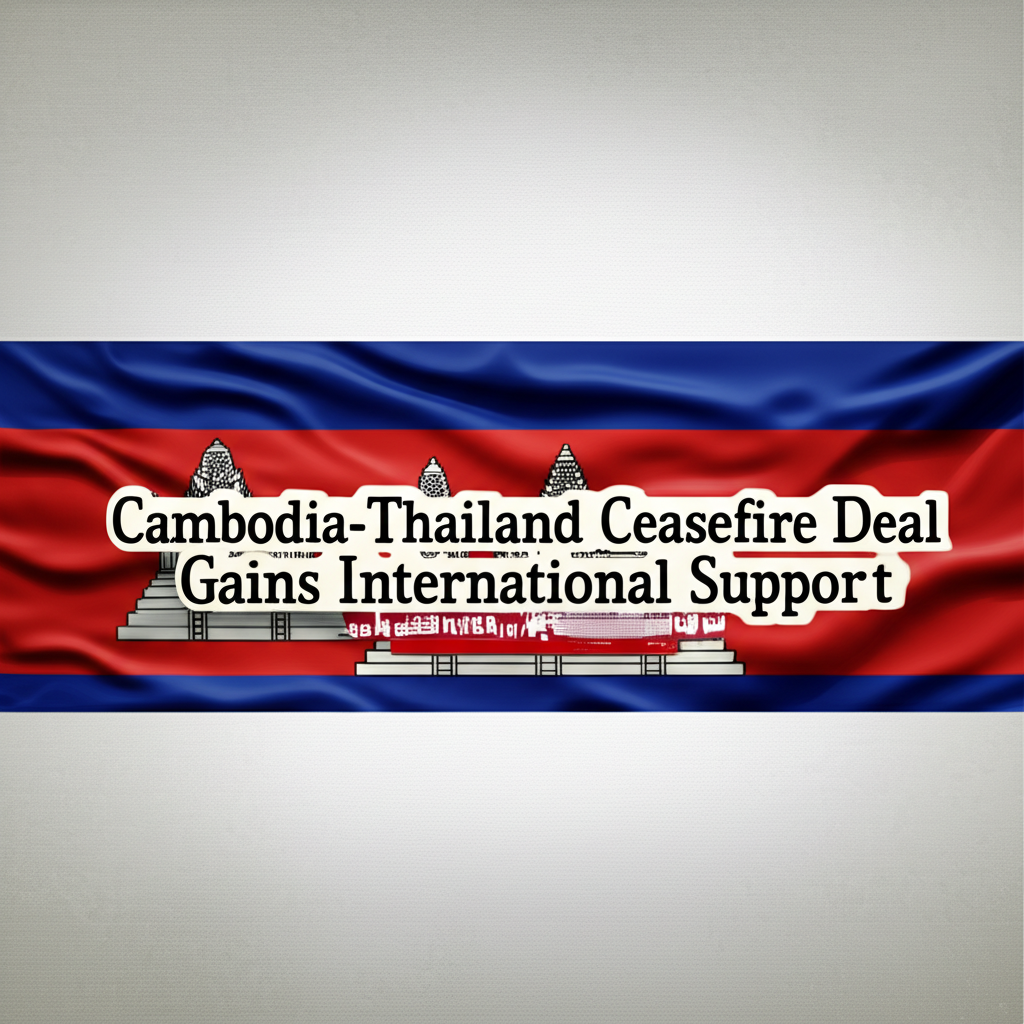Cambodia-Thailand Ceasefire: International Community Voices Support

The recent ceasefire agreement between Cambodia and Thailand has garnered significant international support, marking a potentially pivotal moment in resolving long-standing border disputes and fostering regional stability Following years of intermittent clashes and tensions along their shared border, the agreement, brokered with the assistance of ASEAN mediators, aims to establish a lasting cessation of hostilities and pave the way for peaceful negotiations The announcement of the ceasefire was met with immediate commendations from various international bodies and governments
Background
The United Nations Secretary-General, in a statement released shortly after the agreement was finalized, praised both Cambodia and Thailand for their commitment to dialogue and peaceful resolution He urged both nations to fully implement the terms of the agreement and to continue working towards a comprehensive and mutually acceptable settlement of their border issues Several major powers, including the United States, China, and the European Union, have also expressed their support for the ceasefire The US State Department issued a statement emphasizing the importance of maintaining stability in Southeast Asia and commended the efforts of ASEAN in facilitating the agreement China, a key economic partner of both Cambodia and Thailand, reiterated its commitment to regional peace and development and offered its support for further dialogue and cooperation between the two countries Current SituationThe European Union highlighted the potential economic benefits of a lasting peace along the border, noting that it would create a more favorable environment for trade and investment The EU also pledged to provide technical assistance and support for joint development projects aimed at promoting cross-border cooperation and economic integration Beyond the immediate cessation of hostilities, the ceasefire agreement includes provisions for the establishment of a joint border commission tasked with monitoring the implementation of the agreement and addressing any potential violations The commission will be composed of representatives from both countries, as well as observers from ASEAN This collaborative approach is seen as crucial to building trust and preventing future conflicts
“This ceasefire is a significant step in the right direction,” said Dr. Thitinan Pongsudhirak, a professor of political science at Chulalongkorn University in Bangkok.
“However, it is important to remember that this is just the first step.
The real challenge will be to address the underlying issues that have fueled the border disputes for so long, including overlapping claims to land and maritime resources ”The historical context of the border disputes between Cambodia and Thailand is complex, dating back to the colonial era and subsequent redrawing of borders The Preah Vihear temple, located on the border between the two countries, has been a particularly sensitive point of contention
The International Court of Justice (ICJ) ruled in 1962 that the temple belonged to Cambodia, but disputes over access routes and surrounding areas have persisted The current implications of the ceasefire are far-reaching
For local communities living along the border, it offers a much-needed respite from the constant threat of violence and displacement
For businesses and investors, it creates a more predictable and stable environment, encouraging economic activity and development.
For the region as a whole, it contributes to greater stability and cooperation Looking ahead, the success of the ceasefire agreement will depend on the continued commitment of both Cambodia and Thailand to dialogue and peaceful resolution The joint border commission will play a crucial role in monitoring the implementation of the agreement and addressing any potential challenges International support and assistance will also be essential in helping the two countries overcome their differences and build a lasting peace
While challenges remain, the international community's support underscores the importance of this agreement and the potential for a more peaceful and prosperous future for the region The focus now shifts to implementing the agreement and building trust between the two nations, a process that will require sustained effort and cooperation from all stakeholders
